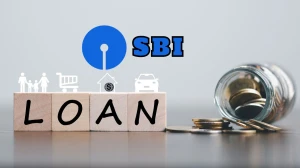
Current Investment Property Mortgage Rates of November 2023
Current investment property mortgage rates in the USA: 7.54% for 15-year loans (down from 7.79%) and 8.36% for 30-year loans (down from 8.57%), highlighting higher risk and potential impact on investor returns.
by Sai V
Updated Nov 25, 2023
On This Page
- Current Investment Property Mortgage Rates
- How Can I Secure the Lowest Mortgage Rate for an Investment Property?
- What Are the Pros and Cons of Investment Property Mortgage Rates?
- How Can One Obtain a Mortgage for an Investment Property?
- What Are the Different Types of Mortgage Loans for Investment Properties?
Current Investment Property Mortgage Rates
The current investment property mortgage rates in the USA reveal a nuanced landscape for real estate investors. For 15-year fixed-rate investment property loans, the rates stand at 7.54% this week, showing a slight decrease from the previous week's 7.79%.
Meanwhile, 30-year fixed-rate investment property loans exhibit a rate of 8.36%, down from 8.57% the previous week. These rates, higher than those for primary properties, reflect the added risks associated with investment properties. Investors are advised to carefully consider these rates, as they directly impact cash flow, profitability, and the overall financial success of their real estate portfolios.
For insights on the future trajectory of mortgage rates in 2023, visit our article on when will mortgage rates go down
How Can I Secure the Lowest Mortgage Rate for an Investment Property?
Securing the lowest mortgage rate for your investment property involves strategic financial moves. From substantial down payments to credit score improvement, debt reduction, and diligent rate shopping, implementing these key steps can significantly impact your overall investment profitability.
Making a Substantial Down Payment
To secure the lowest mortgage rate, consider putting down at least 20%. Explore options like leveraging your current home's equity, targeting more affordable properties, or considering foreclosures for below-market deals. A larger down payment reduces risk for lenders, resulting in more favorable interest rates. In exceptional cases, tapping into your 401(k) may offer additional funds.
Improving Your Credit Score
Elevate your credit score to secure better mortgage rates for investment properties. Lenders favor higher credit scores, translating to significant savings. Beyond lower monthly payments, an improved credit score empowers you to offer competitive rental prices, enhancing overall cash flow from your real estate investment.
|
Credit Score |
Home Price |
Down Payment |
Interest Rate |
Monthly Payment |
Savings per Month |
|
650 |
$250,000 |
25% |
5.75% |
$1,095 |
- |
|
720 |
$250,000 |
25% |
5.125% |
$1,020 |
$75 |
This table compares the financing terms for a home priced at $250,000 with a 25% down payment, illustrating the significant monthly savings ($75 in this example) that can result from improving your credit score.
Reducing Existing Debt and Managing DTI
Keep your debt-to-income ratio (DTI) below 43% to signal financial stability to lenders. Lowering existing debts, such as credit cards or loans, improves your financial profile and increases the likelihood of securing a lower mortgage rate. A disciplined approach to managing debt contributes to a more favorable standing with lenders.
Shopping Around for the Best Rates
Dedicate time to compare mortgage rates from multiple lenders. Despite its perceived inconvenience, this step can lead to substantial savings—hundreds annually and thousands over the loan's life. Act as a savvy investor, seeking at least three to five rate quotes to ensure the most advantageous financing option for your investment property, maximizing overall revenue.
What Are the Pros and Cons of Investment Property Mortgage Rates?
Investment property mortgage rates come with their own set of advantages and disadvantages, which can significantly impact the financial outcomes of real estate investments. In this overview, we'll explore the pros and cons of these specialized mortgage rates in detail.
Pros of Investment Property Mortgage Rates
- Investment property loans enable property owners to generate rental income, which can help cover mortgage payments and contribute to long-term wealth accumulation.
- These loans often come with substantial borrowing limits, allowing real estate investors to purchase high-value properties and generate significant rental income.
Cons of Investment Property Mortgage Rates
- Investment property loans typically have higher interest rates compared to primary residence loans, potentially increasing the overall borrowing cost and affecting profitability.
- Lenders often require larger down payments for investment property loans, which can pose a financial barrier for investors and tie up significant capital.
- Stricter lending criteria, such as higher credit score requirements and lower debt-to-income ratios, may make it more challenging for some investors to qualify for these loans.
Looking for the ideal Mortgage to finance your dream home? MarketsHost has a diverse range of options tailored just for you. Our platform simplifies the process, making it easier for you to find the right fit.
How Can One Obtain a Mortgage for an Investment Property?
To successfully secure financing for your investment property, focus on building a strong credit profile, managing existing debts, and conducting a thorough analysis of mortgage rates, ensuring a favorable loan for your real estate venture.
Building Credit and Saving for Down Payment
To secure an investment property mortgage, prioritize building a credit score of 740 or higher and amassing funds for a robust down payment. Lenders favor strong credit profiles and higher down payments, increasing the chances of obtaining a favorable loan rate.
Managing Debts and Assessing Financial Health
Actively manage existing debts and calculate your Debt-to-Income (DTI) ratio, a pivotal factor in loan approval. Disclose information about other mortgages, car loans, or student loans. For those opting for an LLC purchase, thorough business documentation may be required.
Comparative Analysis and Preapproval
Shop around for mortgage rates from at least three lenders, including community banks and credit unions. Utilize licensed mortgage brokers for assistance. Consider the Annual Percentage Rate (APR) and secure a preapproval from the chosen lender to bolster your position in property negotiations.
What Are the Different Types of Mortgage Loans for Investment Properties?
Various mortgage options exist for investment properties, including conventional loans, portfolio loans, DSCR loans, non-warrantable condo loans, and hard-money loans, each offering distinct features and suitability for different investor needs.
Conventional Loans
Conventional loans are widely available for investment properties and are typically sold to secondary market investors. They offer competitive interest rates but often have strict credit and down payment requirements.
Portfolio Loans
Portfolio loans are held by the lender rather than sold to investors, providing flexibility in terms and criteria. They are suitable for investors who may not meet conventional loan requirements.
DSCR Loans
DSCR loans focus on the property's income, not the borrower's, making them ideal for investors with cash-flowing properties. They are considered non-QM loans.
Non-Warrantable Condo Loans
Non-warrantable condo loans are specialized for condos that don't meet Fannie Mae or Freddie Mac criteria, with stricter eligibility. They are tailored for such unique investment properties.
Hard-Money Loans
Hard-money loans are short-term, high-interest loans favored by real estate investors for quick financing. They are secured by the property and are suitable for time-sensitive investments.
Current Investment Property Mortgage Rates - FAQs
1. What are the current investment property mortgage rates in the USA?
This week, 15-year fixed-rate stands at 7.54%, and 30-year fixed-rate is 8.36%.
2. How can I secure the lowest mortgage rate for my investment property?
Make a substantial down payment, improve your credit score, manage existing debts, and shop around for the best rates.
3. What are the pros of investment property mortgage rates?
They enable rental income generation, covering mortgage payments and contributing to long-term wealth.
4. What are the cons of investment property mortgage rates?
They typically have higher interest rates, require larger down payments, and may involve stricter lending criteria.
5. What types of mortgage loans are available for investment properties?
Options include conventional loans, portfolio loans, DSCR loans, non-warrantable condo loans, and hard-money loans, each with distinct features.




